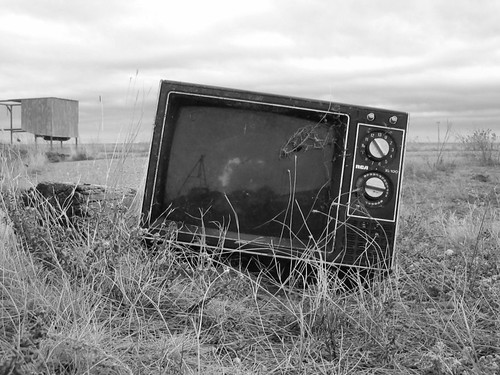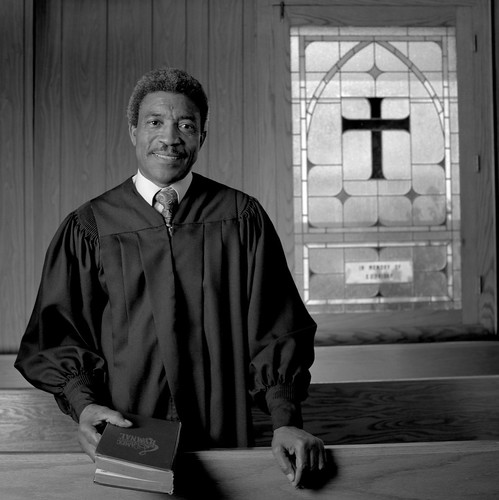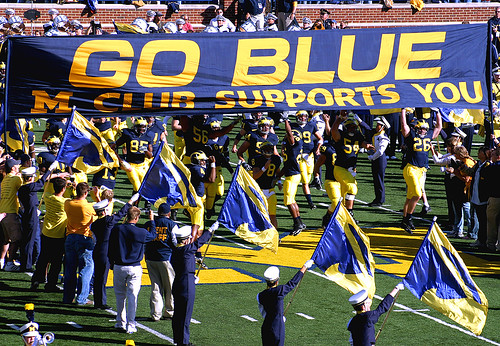 |
| Photo Credit: Hygiene Matters |
~ Basketball player, Charles Barkley
When Charles Barkley made the above quote in a now famous Nike shoe commercial back in 1993, a number of people faulted him for not viewing himself as a role model and for discounting the effect that he had on the young boys and girls that looked up to him as a basketball star.
Many rightly claimed (in my opinion) that Barkley and others in the public eye are role models whether they want to be or not. But the topic of role models does beg a deeper question. Who SHOULD be role models for children? Should the primary models for children be the celebrities they see on television or should it be the adults they interact with on a daily basis?
A recent study done by The Barna Group offers some revealing insights as to who, in fact, teenagers view as their primary role models. Here is some of what Barna learned:
"So who do teenagers name as their role models? Even while limiting the answers to non-parents, family members still comes out on top. The most commonly mentioned role model is a relative—37% of teens named a relation other than their parent as the person they admire most. This is typically a grandparent, but also includes sisters, brothers, cousins, aunts, and uncles.While I still think that those in the public eye need to consider how their personal lives can affect the little ones that look up to them, it is good to know that most teens still recognize their family members and others that they interact with each day as the biggest influence on their lives. Since those responding to this survey were not allowed to list their parents as an answer, I think it is fair to assume that "parents" would have been the most frequently mentioned response had that been permitted.
After “family,” teens mention teachers and coaches (11%), friends (9%), and pastors or other religious leaders they know personally (6%).
Notice that a majority of teens indicated that the people they most admire and imitate are those with whom they maintain a personal connection, friendship, or interaction.
Beyond the realm of the people they know personally, entertainers (including musicians and actors) were named by 6% of teens, followed by sports heroes (5%), political leaders (4%), faith leaders (4%), business leaders (1%), authors (1%), science and medical professionals (1%), other artists (1%), and members of the military (1%).
The high-profile leaders most commonly named were President Obama (3%) and Jesus Christ (3%). Other “celebrities” mentioned by multiple teenagers in the study included entertainers Tyra Banks, Rob Dyrdrek, Lady Gaga, Demi Lovato, Paul McCartney, Taylor Swift, Steven Spielberg and Oprah Winfrey. The only athletes who earned multiple mentions were LeBron James, Peyton Manning, Michael Phelps, Mike Tyson and David Wright. In the spiritual domain, besides Jesus, teens were most likely to admire Mahatma Gandhi and the Pope. Social and business leaders garnering teen attention included Walt Disney, Bill Gates, and Martin Luther King, Jr. The writers who captured the imagination of teens included Yumi Tamura (Japanese Manga artist) and Alan Moore (English comic book writer).
Respondents described a wide range of reasons why they named a particular role model. The most common rationale (26%) was the personality traits of that person (e.g., caring about others, being loving and polite, being courageous, and being fun were some of the characteristics mentioned most often). Another factor in teens’ thinking was finding someone to emulate (22%) or that the teen would like to “follow in the footsteps” of their chosen role model.
Encouragement is another reason for teens’ selections (11%), which included those who said the individual “helps me be a better person,” is someone who is “always there for me,” and is the person who is “most interested in my future.” Other reasons: the role model accomplished his or her goals (13%), overcame adversity (9%), works hard (7%), is intelligent (7%), performs humanitarian effort and activism (6%), maintains strong faith (6%), has great talent (5%), and exudes self-confidence (1%). Although not listed often, some teens identified wealth (3%), self-sufficiency (1%), and fame (1%) as the reasons for preferring a specific leader or role model."
The media, entertainers, friends, teachers, religious leaders, and coaches can all have a profound influence on the life of a child, but it is still a parent that makes the biggest difference. The love, support, instruction and guidance from an involved parent can do more for a child than anyone else can provide. To read more about the Barna study click here.










